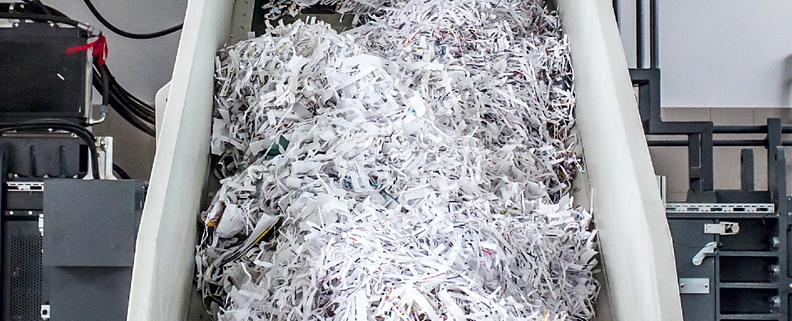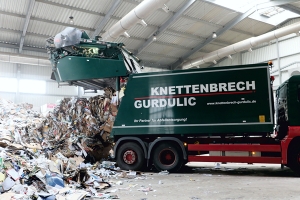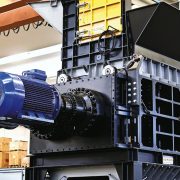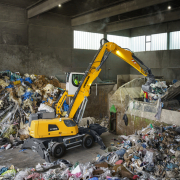European Recovered Paper: Million Tons Need a New Destination
ERPA, the recovered paper branch of the European Recycling Industries’ Confederation (EuRIC), is concerned about the developments on the global recovered paper market, which negatively impacts paper recycling in Europe.
In its statement, ERPA (European Recovered Paper Association) emphasized that the European recycling industry collects and recovers waste paper into standardized quality grade recovered paper in line with EN 643 (European list of standard grades of paper and board for recycling). This secondary material for papermaking “is thus a commodity, whose supply and demand is not solely European but global”. Although the paper recycling value chain is already circular in many aspects, “paper recyclers in Europe continue to face major regulatory and economic obstacles that hamper recycling and threaten their business activities. In addition, latest trade developments result in prices that have substantially decreased over the last two years.”
Collection and utilization of recovered paper in Europe
Recycling rates for paper in Europe are steadily high, ERPA pointed out. In 2018, the recycling rate was 71.5 percent. This would demonstrate that the overall collection of waste paper and its recovery are effective in the EU. “The latest statistics show that Europe has collected in 2018 on average more than 56.5 million tons of recovered paper and uses more than 48.5 million tons of recovered paper to produce paper. As a result, there is a gap between supply and demand of eight million tons in terms of excess supply in Europe,” ERPA explained. “This oversupply is a structural one that is lasting for more than ten years and shows that Europe’s collection systems to collect paper are pretty efficient, even though there is still room for improvement in the implementation of separate collection to preserve waste paper quality.” Until 2017, the majority of recovered paper oversupply – between seven to eight million tons annually – was exported towards China.
Disruptive trade practices
In 2017, China announced it would be reducing or even banning its import of global paper waste. Other Asian countries, such as Malaysia and Indonesia, have since declared to follow suit. EuRIC never challenged China’s legitimate objective to enhance environmental protection and ban the imports of unrecyclable waste that can be a hazard to the environment and human health; the confederation fully supports such an objective. However, EuRIC as the umbrella organization for European recycling industries, has strongly opposed the decision taken “to anchor import restrictions on level of impurities which are disproportionately low and discriminatory since no standardized method to measure them is in place, leaving operators in a constant state of legal uncertainty as to whether a shipment is or is not compliant”. Recent trade restrictions measures announced by countries such as Indonesia were based on inspections criteria, which de facto would result in a subjective assessment. “As a result, recyclers are constantly facing inspections carried out on the basis of checks whose rules of compliances are largely unknown with the risk, financially prohibitive, of shipments being rejected and returned whenever the above-mentioned acceptance criteria are not met.”
Furthermore, the absence of end-markets for about eight million tons of recovered paper over the last two years has resulted in a sharp decline of recovered paper prices. “The paper recycling sector is currently in a crisis situation with an increasing amount of companies active in paper collection and recovery which are ceasing to operate on a temporary or permanent basis, which is at odds with the objective of moving towards a more circular economy,” ERPA stated. “Europe’s recycling industry can no longer bear such market conditions for the third year in a row on top of regulatory barriers that need to be addressed urgently. Beyond the impact for the private waste management and recycling industry, extremely depreciated prices jeopardize the entire recovered paper collection value chain, including local authorities, which cannot finance proper collections based on the revenues generated by sales to recycling companies.”
Measures needed
“The current trade restrictions set up by China and other South-East Asian countries can trigger opportunities for the European paper recycling industry, provided urgent measures are enacted,” ERPA says. It strongly welcomes additional capacities announced by the paper industry in several Member States since they will increase the demand for recovered paper in Europe. “Nevertheless, building new capacities take time to be built and launched and will not be sufficient to close the gap between supply and demand,” the association underlined. Therefore, the European paper recycling industry would strongly support measures and actions aiming at restoring a healthy recovered paper commodity market in Europe and globally:
■ Firmer actions by the European and national authorities to prevent the implementation of trade restrictions based on discriminatory and disproportionate criteria and restore free and fair access to international markets needed to balance supply and demand;
■ EU wide end-of-criteria for paper based on EN 643 standard list of recovered paper grades to incentivize quality while boosting Europe’s internal market;
■ Eco-design to ensure that paper can be recovered in all products once they reach end of life and phase out unrecyclable products;
■ Substantially increasing, whenever technically and legally feasible, the financial contributions to companies involved in the collection and recovery of waste paper falling under EPR (extended producer responsibility) Schemes. Such a short-term measure would be essential to avoid a collapse of the existing collection and recycling systems enabling the achievement of high recycling rates;
■ Measures and incentives to boost the demand of products containing recycled paper fibers and reward their environmental benefits that the market fails to internalize;
■ Investments in digitalization, such as block chain technologies, to assist the elimination of illegal exporting and give a competitive market to European recycling companies in intra- and extra-EU trade of secondary raw materials.
According to ERPA, measures and incentives could be set up via the revision of sectorial legislation, such as the Packaging and Packaging Waste Directive, stand-alone instruments setting up incentives or Green Public Procurement (GPP), taking into account the enormous purchasing power of public procurement, which is estimated to be worth 16 percent of GDP in the EU.
(GR 32019, Page 19, Photo: HSM)










